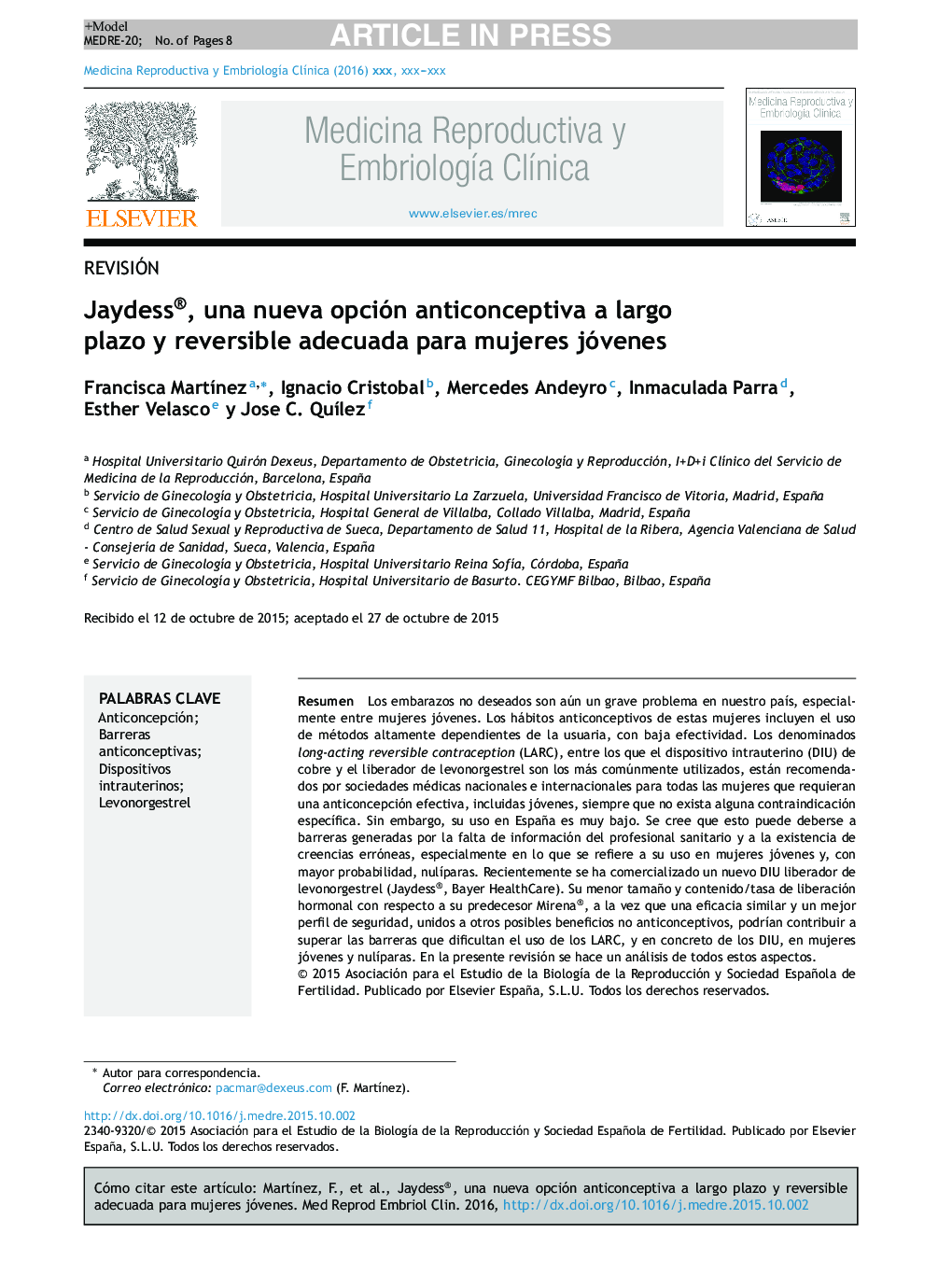| Article ID | Journal | Published Year | Pages | File Type |
|---|---|---|---|---|
| 3965993 | Medicina Reproductiva y Embriología Clínica | 2016 | 8 Pages |
Abstract
Unintended pregnancies remain a serious problem in Spain, especially among young women. Contraceptive patterns of young women include methods that are highly dependent of the user, with low effectiveness. Methods of long-acting reversible contraception (LARC), among which copper and levonorgestrel-releasing intrauterine devices are the most common, have been widely recommended to all women wishing a highly effective protection, at any age, when no specific contraindication exists. Despite this, the use of these devices in Spain is very limited. This is thought to be due to the existence of barriers arising from lack of information and wrong beliefs, which specially affect a higher use by young and nulliparous women. A new levonorgestrel-releasing intrauterine device (Jaydess®, Bayer HealthCare) has been recently marketed. Its smaller size, hormone content, and release rate compared to Mirena®, along with a similar efficacy and better safety profile, as well as other non-contraceptive benefits, may help overcome the barriers hindering a wider use of LARC (and particularly intrauterine devices) among young and nulliparous women. All these aspects are analysed in this review.
Related Topics
Health Sciences
Medicine and Dentistry
Obstetrics, Gynecology and Women's Health
Authors
Francisca MartÃnez, Ignacio Cristobal, Mercedes Andeyro, Inmaculada Parra, Esther Velasco, Jose C. QuÃlez,
